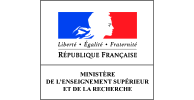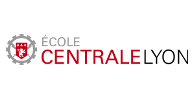Theme 3 : Forming and training throughout life
Responsables
- Denis ABECASSIS (AUNEGE)
- Jean-Marc OGIER(Université de la Rochelle)
Description
Beyond the current economic difficulties, all economists agree in considering that knowledge and innovation are key drivers of economic development and are key factors for a sustainable recovery. With regard to knowledge, the problem is not only to form the age group of 18-24 years, but to extend the range of learners in all age groups, all socio-professional, whose learning needs “continuous” are increasing in modern societies. The diversity of situations and learners whose achievements, interests and motivations for different learning environments is such that solutions to both global and individual absolutely must be deployed.
Given the scale of need, the European Union has placed “Education and training throughout life” as “Target Europe 2020”, thus highlighting the collective awareness of the needs considerable qualification of an important part of the population to which higher education is now open.
In this perspective, European universities have presented to the board of the European Union a charter (see www.eua.be) during the French Presidency of the EU in 2008. This charter, adopted by the CPU, place the initial training and continuing education a central concern of the university. The delay is significant, “adults” are three times fewer in French universities and in the U.S.. Especially, the advent of digital opens the public more than others, new possibilities of access to personalized teaching methods, erasing the boundaries of time and space, making it accessible routes previously confined and providing access to skills, to additional training and finally graduation, including the voice of VAE.
Already, in response to the mass management of learners with individual profiles varied, many countries have developed and supported the concept of Open University (Open Universities), as evidenced by the few following:
- More than 2 million enrolled in the Open University of China,
- 1.3 million at the Indira Gandhi Open University, India,
- More than 200 000 open universities in several European, Great Britain, Germany, Spain and exponential growth in all countries.
These universities, carrying many values including through the placement of the learner in a position of responsibility, provide answers to issues of openness to society, to questions of cultural identity, support, cooperation and solidarity , or the promotion of business and culture of entrepreneurship.
<
p class=”justified”>
In this area, too, the French university landscape is currently undergoing major changes. After trying every construct their own online training, cooperation have developed and pooling, supported by the Mines, have emerged. And tools, structures, thematic groupings are now available to universities and academics.
These reflections show the importance of this subject to the CIUEN 2012.
The objective of this theme is to consider how to facilitate the management of digital learning teacher training and staff, to better prepare our students and future students, as well as the consequences of these developments on teaching practices, building on the experiences of several neighboring countries.
Our discussion will include:
- Digital skills and certification: the B2i to C2i Level 1 and 2,
- Digital training,
- Elearning environment from high school to University,
- The Universities’ professionals evolutions with digital,
- Digital and sandwich course,
- The Education offer,
- The employability and career security.










